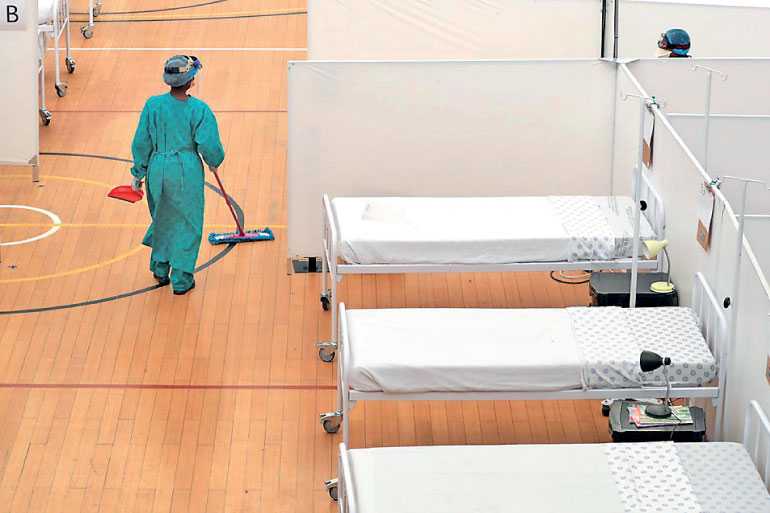Friday Feb 27, 2026
Friday Feb 27, 2026
Friday, 24 July 2020 00:00 - - {{hitsCtrl.values.hits}}

FILE PHOTO: A health worker walks between beds at a temporary field hospital set up in a sports complex by Medecins Sans Frontieres (MSF) during the coronavirus disease (COVID-19) outbreak in Khayelitsha township near Cape Town, South Africa - Reuters
JOHANNESBURG (Reuters) - South Africa witnessed some 17,000 extra deaths from natural causes or 59% more than would normally be expected between early May and mid-July, scientists said, suggesting many more people are dying of COVID-19 than shown in official figures.
New data by the South African Medical Research Council (SAMRC), released overnight, showed that just in the week to 14 July - the latest figures available - there was an excess of 5,022 deaths by natural causes, about half more than usual.
Africa’s most industrialised nation is in the middle of a runaway epidemic of the coronavirus, with cases increasing by more than 10,000 day and the current total just shy of 400,000. But its recorded death toll has so far been low, at 5,940 deaths or less than 1.5% of cases.
Debbie Bradshaw, chief specialist scientist at the government-funded research council, said the figures revealed “a huge discrepancy” between the confirmed COVID-19 death toll and the number of excess natural deaths.
President Cyril Ramaphosa implemented a tough lockdown at the end of March, shutting shops, requiring people to stay at home and sending the army on to the streets to enforce it back when South Africa had only 400 recorded cases.
But a surge in poverty and unemployment in a country that already had too much of both spurred the government to lift restrictions well before the peak of infections.
The council’s data showed that of the 17,090 extra deaths, 11,175 were people over the age of 60, a telltale sign of COVID-19, which is overwhelmingly more deadly for older people.
Ramaphosa said this month that scientists had predicted up to 50,000 deaths in South Africa, a figure which seems possible based on Thursday’s findings by the council.